Best smart speaker - get a little help from Google, Alexa and more
The best smart speakers will change the way you live and listen to music around the home, and these are the best you can buy right now.
Have you ever wanted a personal assistant? Well with a smart speaker, you can! Affordable and packing a huge amount of power, the best smart speakers allow you to listen to music, call your family without lifting a finger, or simply set a timer for the risotto you've got bubbling away. It's an all-in-one system designed to make your life easier.
The main voice assistants are Google Assistant, Amazon's Alexa and Apple's Siri, and which one you choose will depend on personal taste. Each speaker comes with one integrated and, once it arrives, it's a doddle to set up with an app and your Wi-Fi password.
Once you're acquainted with your new smart speaker, though, don't be surprised when you're tempted to set up a whole network of smart devices. There's no obvious end to what you can do, and the competition between Google, Apple, Amazon and other market leaders such as Sonos means, whichever you choose, they're constantly being updated with new features.
While you can hook up everything from the best video doorbells to robot hoovers to your smart speaker, they don't require additional gadgets to work. As seamless as the best wireless speakers, you can listen to music by requesting a song, programming your favourite playlist to start with your morning alarm or - if you've got your hands full with dinner - pause or stop music from playing completely hands-free.
We've looked at some of the best smart speakers on the market right now, rating them on sound quality, style and more. Scroll down to see what we thought.
The best smart speakers in 2025
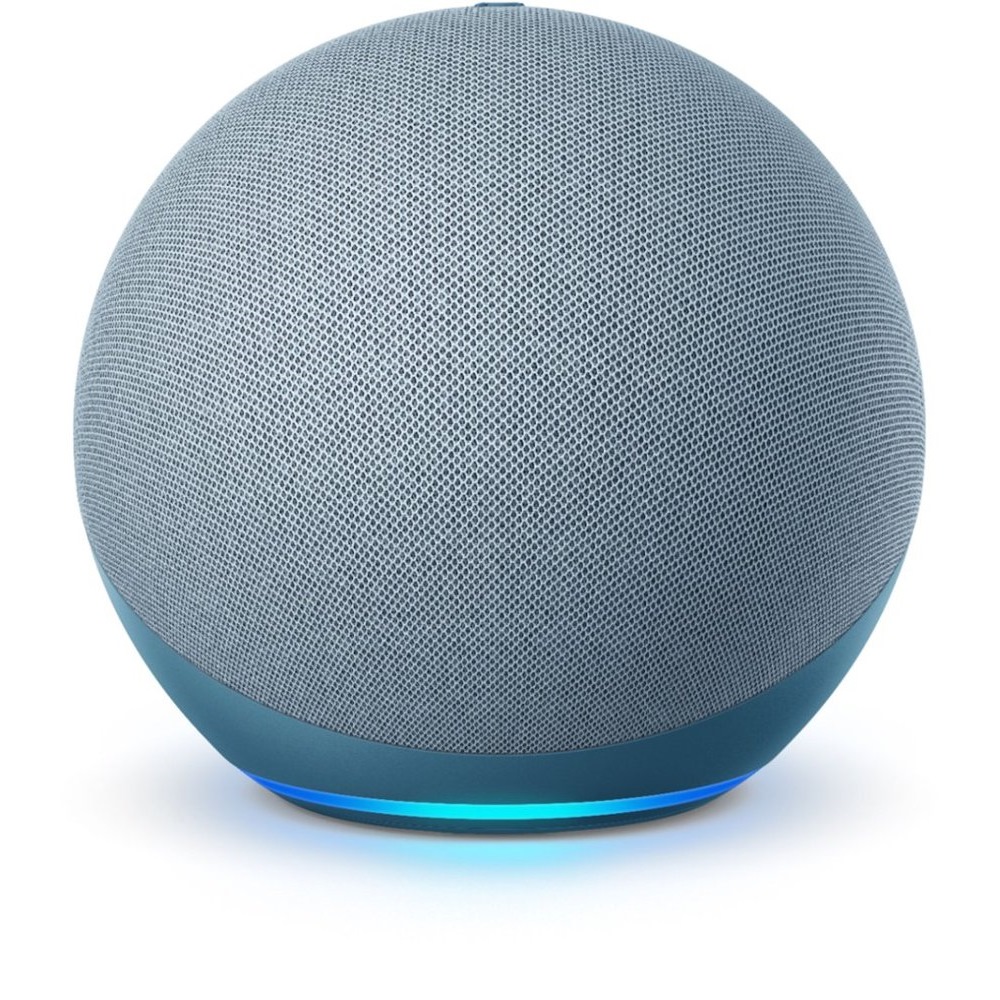
1. Amazon Echo Dot (4th Gen)
Specifications
Reasons to buy
Reasons to avoid
Bigger isn’t always better. The Amazon Echo Dot, now in its fourth generation, is an incredibly useful smart speaker that won’t break the bank. It’s also as cute as a button.
With a lovely redesign to bring the Dot more in line with Amazon's flagship speaker, it still won’t take up too much room on your desktop. It can function as a diddy voice assistant, playing tunes in the background while you work, offering news updates or assisting with currency conversions on the fly. Alternatively, you can hardwire a Dot into an existing Hi-Fi system, using a single stereo 3.5mm lead, and effectively make your old school Hi-Fi system voice assistant capable.
Audio quality won't blow you away but is relatively fine. In addition to Wi-Fi, it supports Bluetooth streaming, which is helpful if you’re watching some catch-up telly on your smartphone but want to boost the volume.
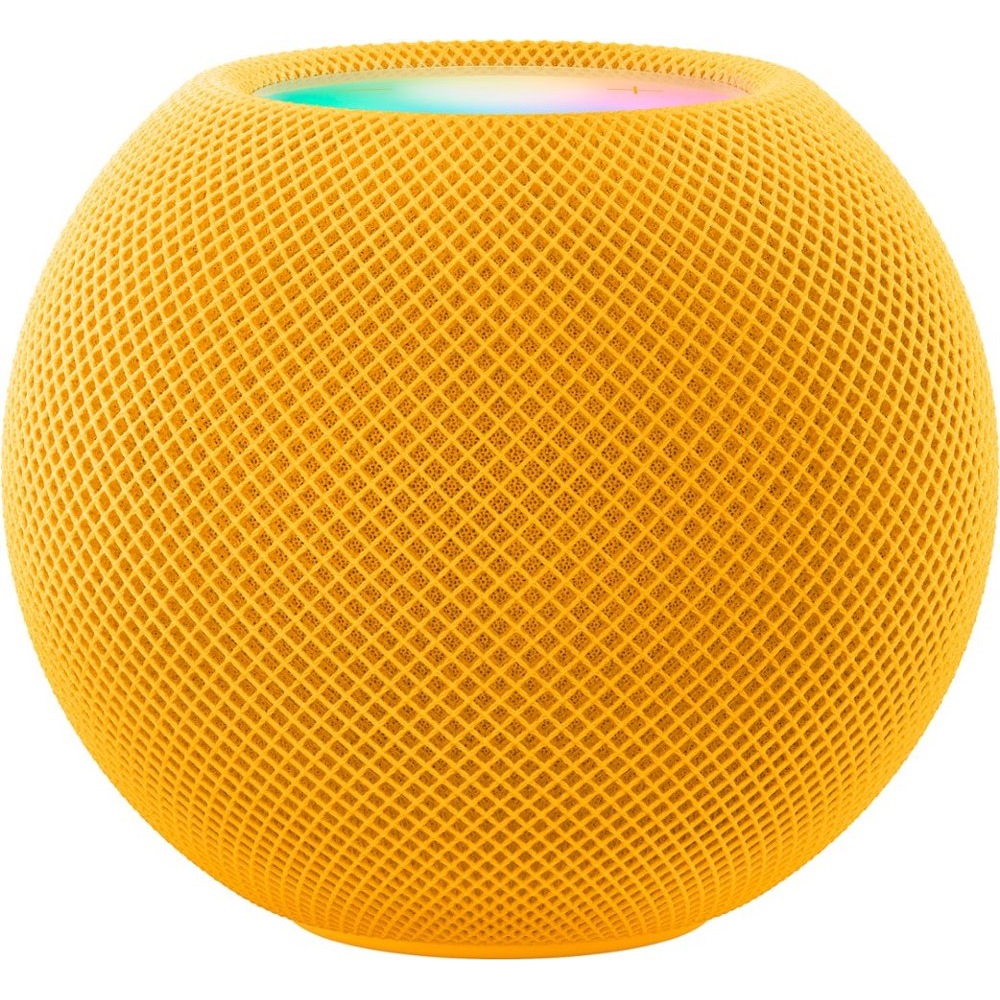
2. Apple HomePod Mini
Specifications
Reasons to buy
Reasons to avoid
For dedicated Apple users, Apple’s HomePod is the best smart speaker you can buy. Android fans are advised to move on because this isn’t the droid they’re looking for. It can’t even be set up without an iOS device.
As you’d expect from Apple, the HomePod Mini is beautifully designed. The spherical shape and mesh fabric cover are definitely interiors friendly. Unlike rival smart speakers, there’s no Bluetooth onboard, but iOS users won’t notice. Pairing an iPhone to the speaker is a doddle.
Siri makes for a surprisingly helpful musical assistant, as she not only plays your requests but calls upon Apple’s excellent curation and recommendation engine to help you discover new music. This is quite a trick, as music discovery when you only use voice to navigate can be rather difficult – you tend to end up asking for the same old tunes.
Ask Siri to play something you like, and you’ll more likely than not get a surprising (in a good way) new offering. Neither Google nor Amazon Alexa is quite as switched on when it comes to fresh tunes.
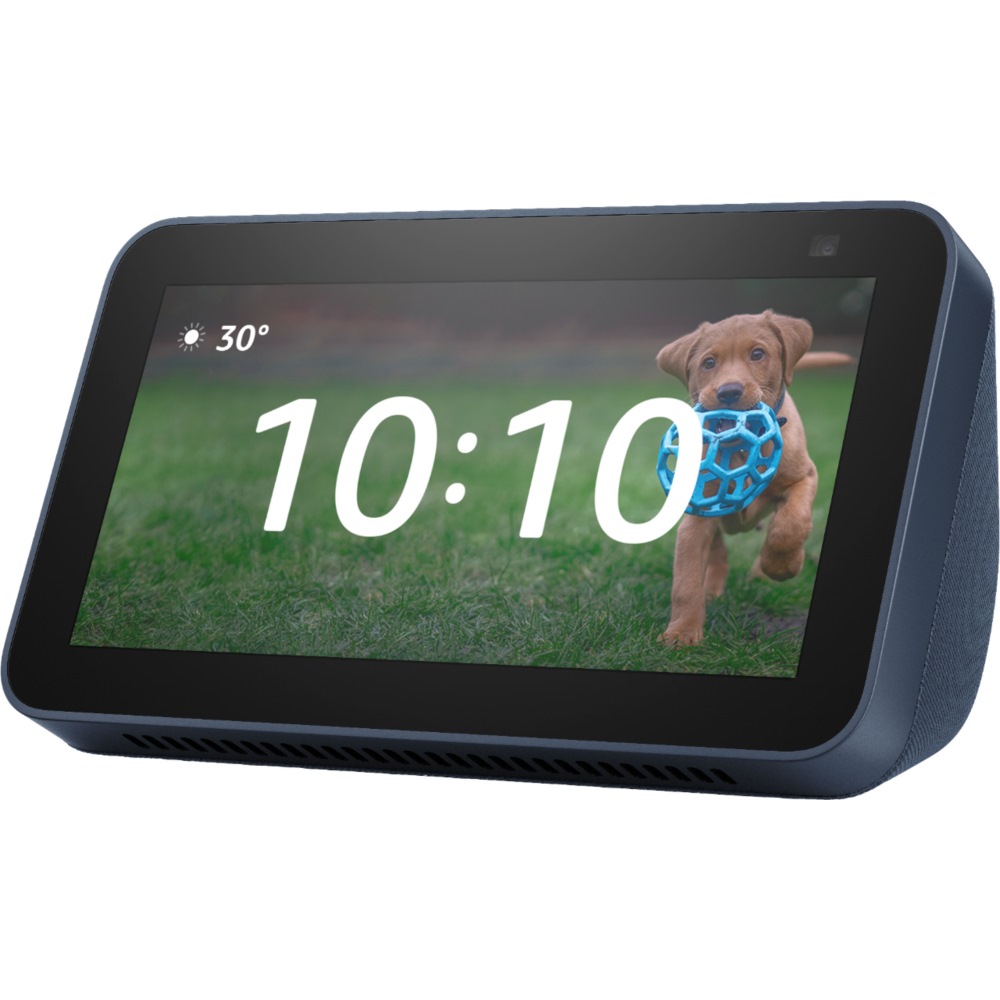
3. Amazon Echo Show 5 (2nd Gen)
Specifications
Reasons to buy
Reasons to avoid
The Amazon Echo Show 5 has had an upgrade for 2021, adding even more to love about the brand's smaller smart display. The 8-inch screen is ideal for video chats (which we're all very used to now!) or even following a recipe in the kitchen and, while you're chatting to friends and family, the camera will pan to follow where you go.
Smart displays are especially useful if you want to use your speaker with one of the best security cameras, as you can get a video feed directly on the screen, making monitoring activity even easier.
Unfortunately, the design of the Show 5 remains slightly bulky, with the screen attached to a speaker that also serves as the stand. On the one hand, the size makes for better audio, but you'll need to dedicate a space on a side table or counter. Once you have, you'll get to enjoy all of the features of Alexa with the benefits of a tablet.
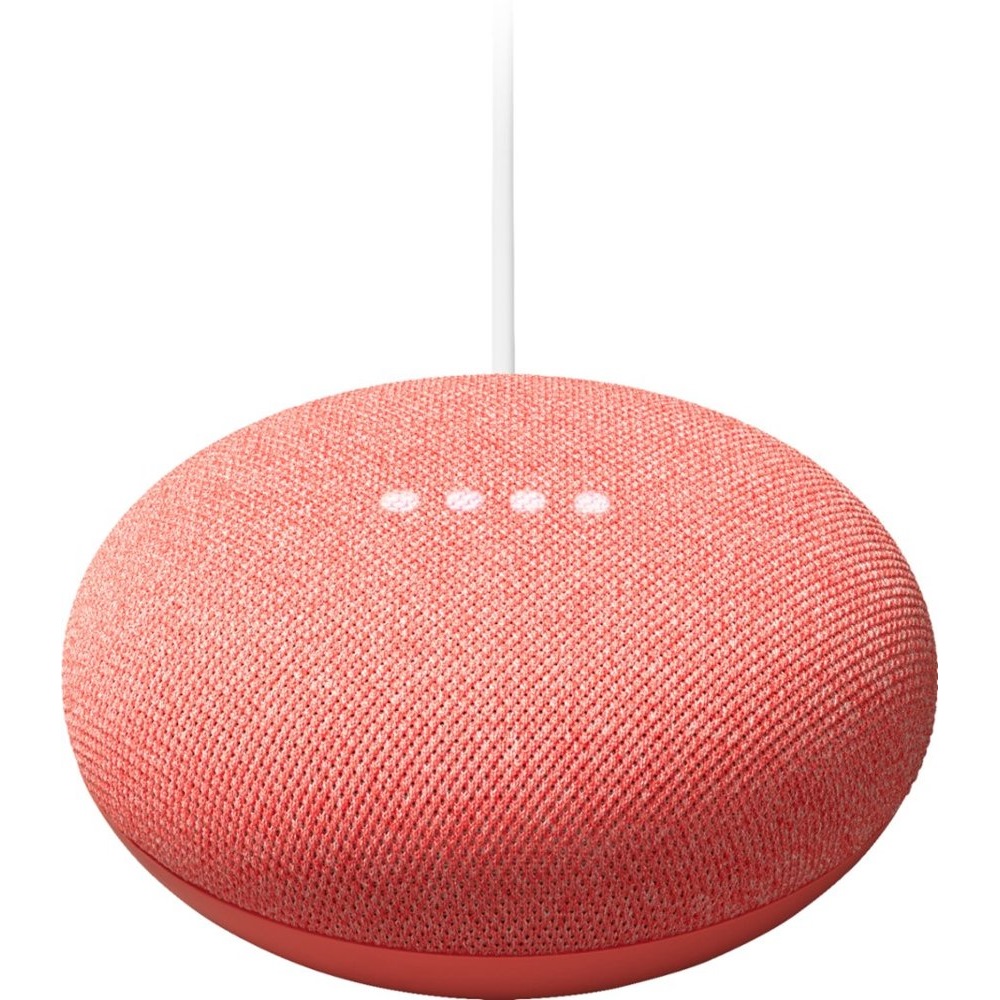
4. Google Nest Mini
Specifications
Reasons to buy
Reasons to avoid
Replacing Google's Home Mini speaker, the Nest Mini looks almost identical but sports some improvements to audio quality. For the initiated, Google's smallest speaker is a little life-saver, fitting into any décor style and space with its white bottom and mesh top (in a variety of bright colours) disappearing into its surroundings until it's needed.
It's still not for music fanatics, even though the audio quality has been improved, but it's recommended for smart home beginners who need an easy place to start. It's incredible value for money and, in our opinion, remains Google's best smart speaker for the broadest range of people. All of Google's smarts in a tiny pebble-shaped package!
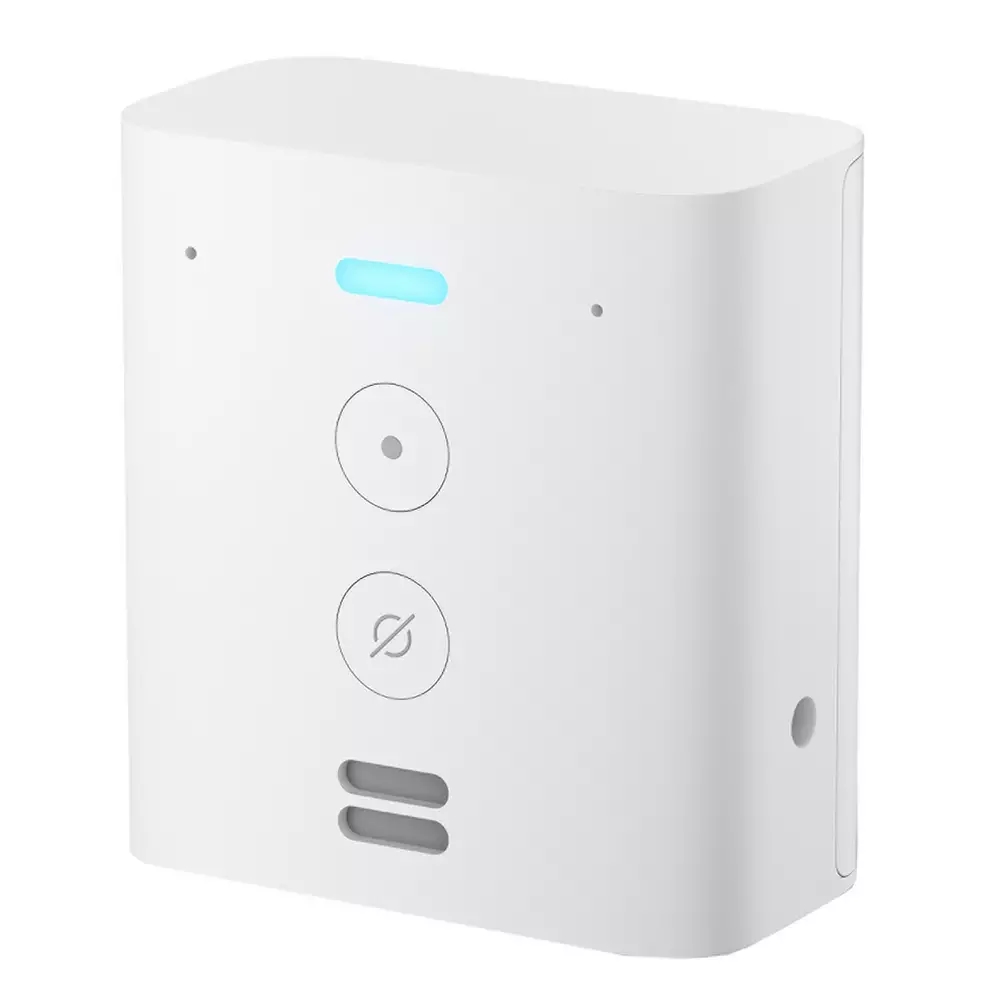
5. Amazon Echo Flex
Specifications
Reasons to buy
Reasons to avoid
A great smart speaker alternative for those struggling to find counter space for yet another device, the Amazon Echo Flex is designed to be a hidden hub that allows your household to use Alexa without the speaker element. Despite not taking up the space of an Amazon Echo Dot or Studio, the Flex still has everything Alexa has to offer.
Simply plug it into an outlet and you can include the smart assistant in any room of the house. Amazing for putting in the kitchen for on-demand answers to your cooking questions. It's also great for making announcements to other rooms in the house when family members are out of earshot, providing you have another Echo device at home.
Privacy is still possible, too, with a prominent 'mic off' button placed on the front of the device, and the USB ports can be used as an extra charger so you're not even sacrificing plug space.
How to choose the best smart speaker
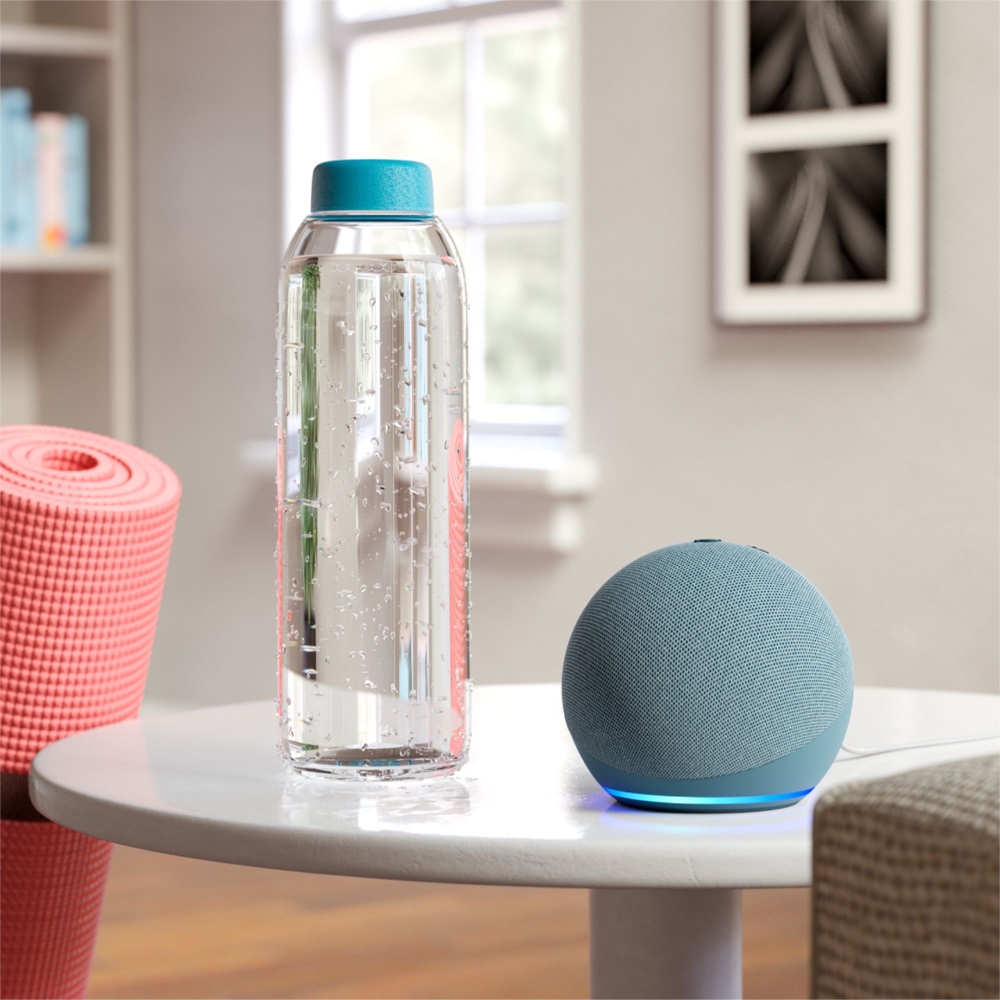
Smart speakers are available from £45, for a Google Nest Mini or Amazon Echo Dot up to around £200. The important point to remember is that price isn’t reflective of smartness. A cheap Amazon Dot is just as clever as its more expensive stablemate, and the same applies to Google.
What you’re paying more for is the quality of the speaker itself.
Generally, it’s worth investing in a high-performance smart speaker when it's primarily being used for music listening. For bedside table duties or as a kitchen companion, size and practicality become more important.
A smart speaker has multiple functions. For most of us, it’s the ability to play music on command from streaming services like Spotify or Tidal, or selected radio stations, that is their biggest attraction.
But they can do far more. If you have a lot of smart devices on your home network, an ecosystem as it were, perhaps involving a smart thermostat and lighting, then you can also interact with them, again by voice command.
A digital assistant can also be used to relate news, read an audiobook, play games, make size or currency conversions, or - most importantly of all - offer weather reports.
You can also even your smart speaker to make voice calls, or as an in-house intercom.
If you’re feeling blue, they’ll tell you a joke too - just don’t expect it to be a rib-tickler. They’re smart, not funny.
The biggest single maker of smart speakers is Amazon. Its own-brand Echo devices, which use the Alexa platform, come in various sizes and sell in their millions. Google also makes its own smart speakers. Increasingly though, more familiar Hi-Fi brands are releasing smart speakers all their own - names like Sonos, Technics, JBL, LG and Harman Kardon.
Remember, if you simply want to stream Spotify from your smartphone to a wireless speaker, you don’t need to go smart at all. A regular Bluetooth wireless speaker will do the same job fine.
OK, now you’re getting personal. In truth, there’s not a huge difference between any of the digital voice assistants when it comes to smarts. They have a slightly different manner, and can be tripped up by even simple questions, but share basic voice control functionality.
We think Siri has an edge over Alexa, but only when it comes to music discovery. Ask Alexa to ‘play something you’d like’ typically prompts the speaker to play the same old songs. Music discovery isn’t her strong point.
That said, all smart speaker platforms improve over time, getting sharper and more intuitive in the cloud. The Alexa we listen to today is a good deal smarter than the one we listened to back when the platform first launched. Between you and us, she was a dope...
The best smarter speaker platform is the one that works best for you. Both Amazon Alexa and Google Assistant have the ability to front complicated ecosystems of connected products. If your media streamer of choice is an Amazon Fire TV stick, then it makes sense to add an Alexa smart speaker to your network.
Like many of the best TVs, they are Android-based, so a Google smart speaker would seem the natural fit. What we don’t recommend is mixing the two platforms. Having to wrestle with different wake words (“Hey Google…” versus “Alexa…”) gets tiresome pretty quick...
Both Amazon Alexa and Google Assistant smart speakers offer Bluetooth connectivity alongside Wi-Fi as standard. In the home, it’s often easy to forget just how devices are communicating, as interactions become quite seamless.
Streaming from your mobile to a smart speaker is as simple as saying ‘Alexa connect my phone” although you’ll need to remember to have Bluetooth switched on.
Similarly, both Amazon Alexa and Google Assistant smart speakers can be used for whole-house audio. Simply need to create a ‘Group’ of connected smart speakers and then ask your smart assistant to play music to said named group.
Yes, your smart speaker is always listening, because it’s waiting to react to its ‘wake word.’ This has led to concerns regarding privacy and security. If you are concerned about Google or Amazon eavesdropping, then the microphone on your smart speaker can be turned off manually.
It will then becomes oblivious to your conversations, but you’ll need to manually turn the microphone back on for the smart speaker to function.
If this aspect of smart speakers gives you cause for concern, then a regular ‘non-smart Bluetooth wireless speaker may be a better buy.
Additional words by Caroline Preece
Get the Ideal Home Newsletter
Sign up to our newsletter for style and decor inspiration, house makeovers, project advice and more.
-
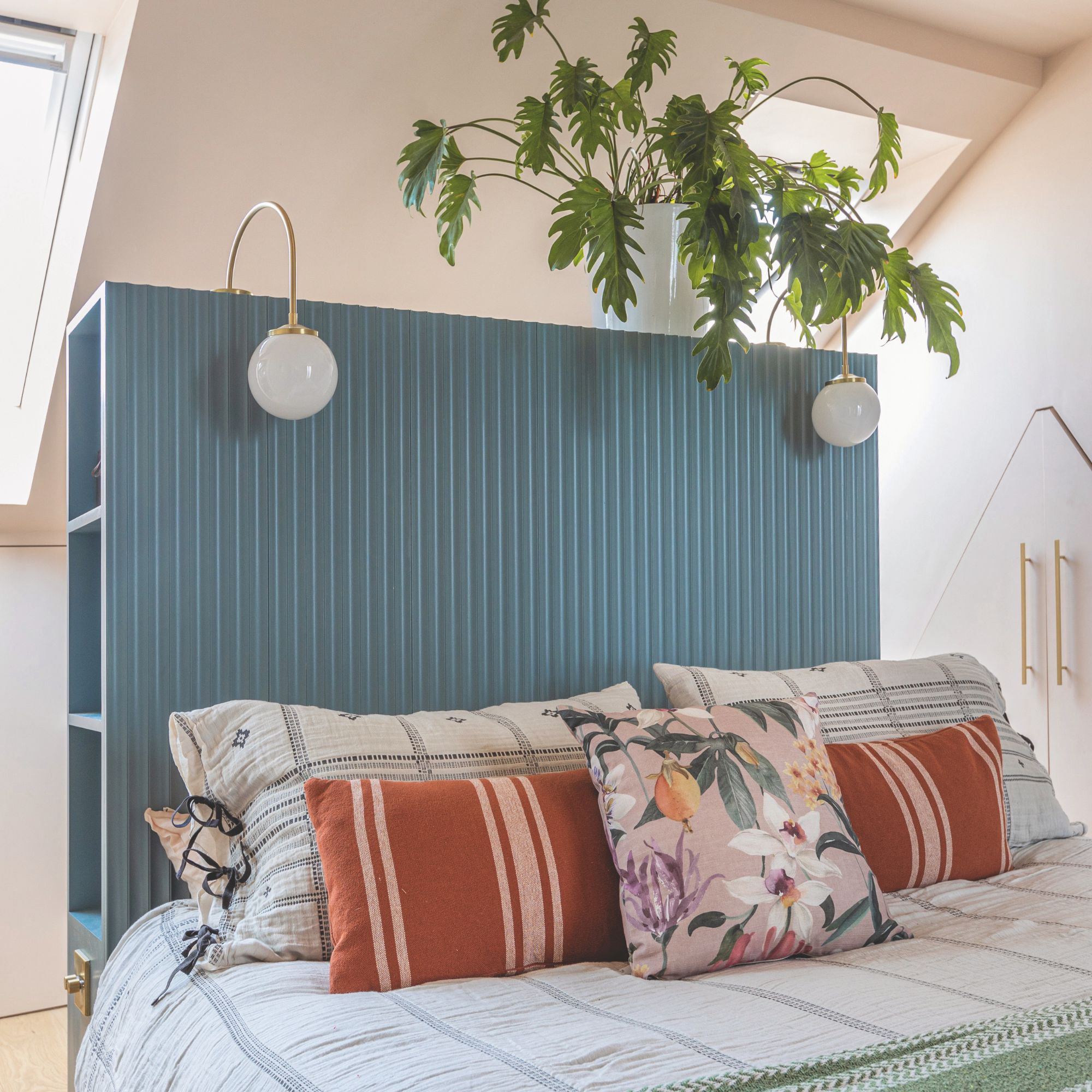 5 signs you’ve taken decluttering too far — and how you can pull yourself back, according to organisation experts
5 signs you’ve taken decluttering too far — and how you can pull yourself back, according to organisation expertsYou might have to start resisting the urge to purge
By Lauren Bradbury
-
 What is the Party Wall Act 3m rule and is it something you should be worried about? This is what the experts say
What is the Party Wall Act 3m rule and is it something you should be worried about? This is what the experts sayDon't get caught off-guard by the Party Wall Act 3m rule — our expert guide is a must-read
By Natasha Brinsmead
-
 Shoppers can’t get enough of The Range’s lemon tree, but I’ve found an even cheaper bestseller at B&Q - it’s perfect for a Mediterranean look
Shoppers can’t get enough of The Range’s lemon tree, but I’ve found an even cheaper bestseller at B&Q - it’s perfect for a Mediterranean lookWelcome the summer with this glorious fruit tree
By Kezia Reynolds